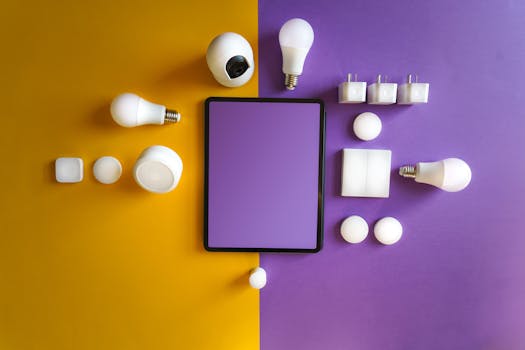
Home Automation in 2025: The Smart Home Ecosystem
Introduction to Home Automation
Home Automation in 2025: The Smart Home Ecosystem is becoming increasingly popular as technology advances and people seek to create a more convenient, efficient, and secure living space. Home automation, also known as smart home technology, refers to the use of devices and systems that can be controlled remotely or automatically to manage various aspects of a home. This can include lighting, temperature, security, entertainment, and more.
Benefits of Home Automation
The benefits of home automation are numerous. For one, it can greatly enhance the convenience and comfort of a home. With smart devices, homeowners can control their lighting, thermostat, and security systems from a single interface, whether it’s a smartphone app or a voice assistant. This can be especially useful for people with disabilities or elderly individuals who may have difficulty moving around the house.
Home automation can also increase energy efficiency and reduce waste. Smart thermostats, for example, can learn a homeowner’s schedule and preferences to optimize heating and cooling usage. Similarly, smart lighting systems can automatically turn off lights when not in use, reducing energy consumption and prolonging the lifespan of light bulbs.
Components of a Smart Home Ecosystem
A smart home ecosystem typically consists of several components, including:
- Hub or Controller: This is the central device that connects and controls all other smart devices in the home.
- Sensors: These are devices that detect and measure various parameters such as temperature, humidity, and motion.
- Actuators: These are devices that perform specific actions, such as turning on lights or adjusting the thermostat.
- Smart Devices: These are devices that can be controlled remotely or automatically, such as smart light bulbs, security cameras, and door locks.
Latest Trends and Advancements
In 2025, home automation is expected to become even more sophisticated and integrated. Some of the latest trends and advancements include:
- Artificial Intelligence (AI): AI-powered smart home systems can learn a homeowner’s preferences and habits to provide personalized automation and recommendations.
- Internet of Things (IoT): The increasing number of IoT devices in the home will enable seamless communication and control between different devices and systems.
- Voice Assistants: Voice assistants like Alexa and Google Assistant will continue to play a major role in controlling and interacting with smart home devices.
Conclusion
In conclusion, Home Automation in 2025: The Smart Home Ecosystem is revolutionizing the way we live and interact with our homes. With its numerous benefits, including convenience, energy efficiency, and enhanced security, it’s no wonder that smart home technology is becoming increasingly popular. As technology continues to advance, we can expect to see even more innovative and integrated smart home solutions in the future.






